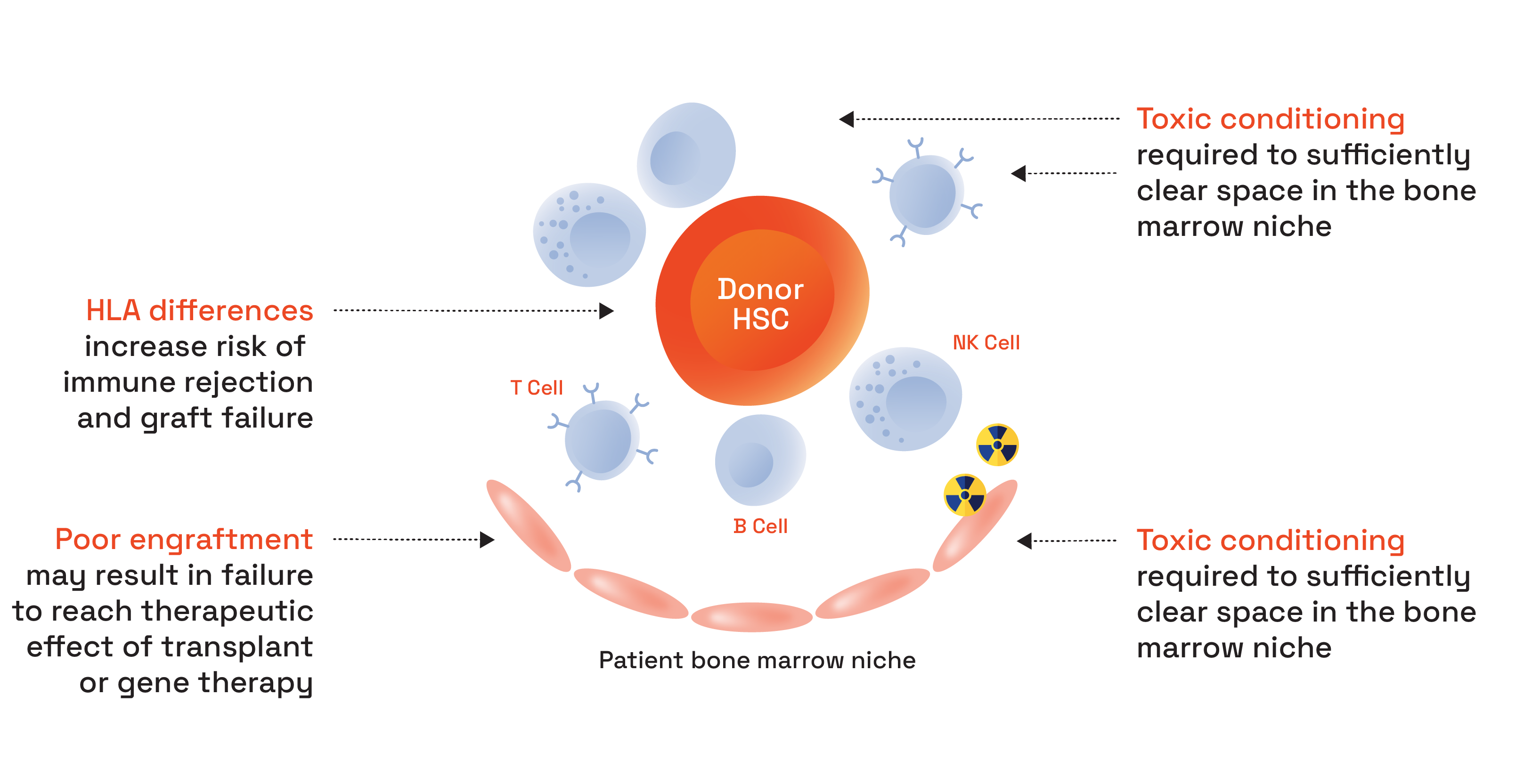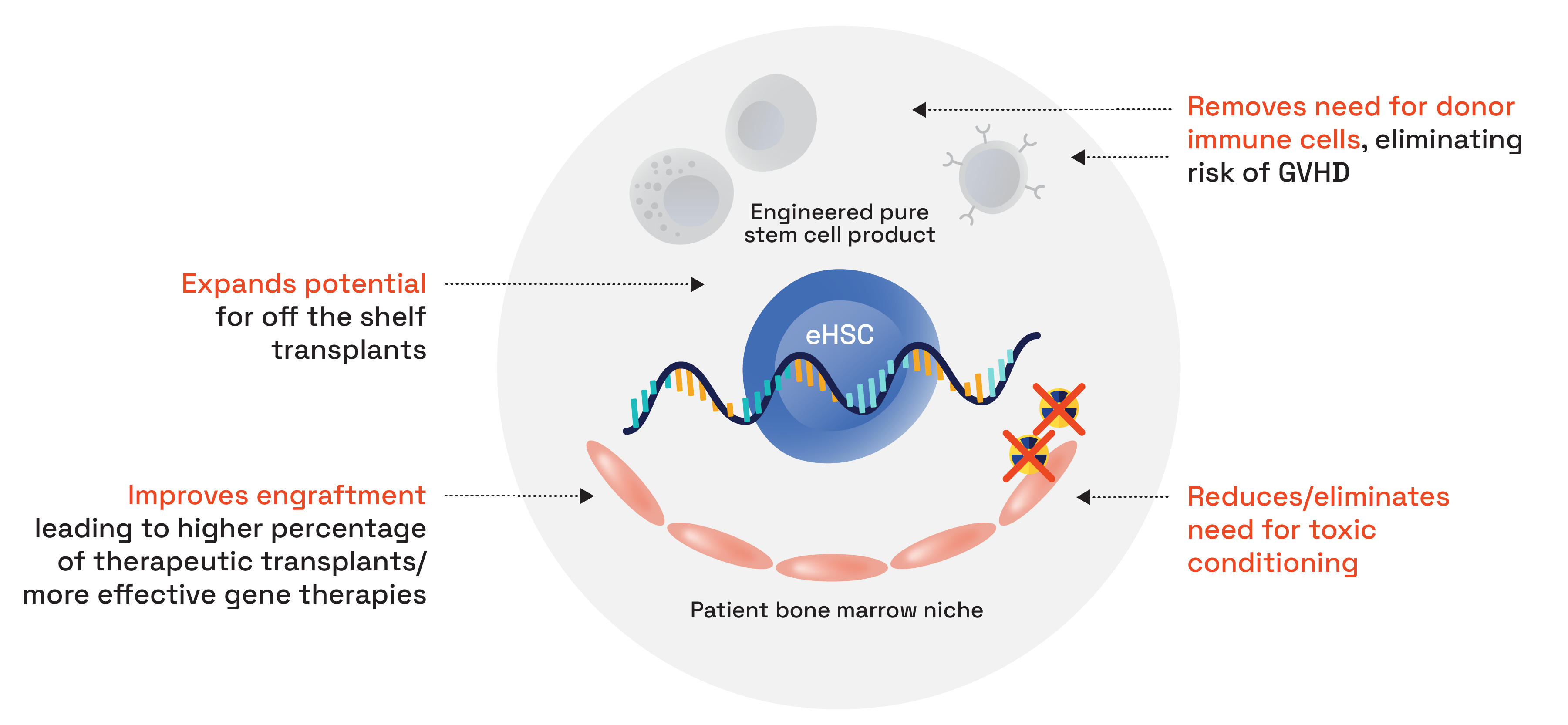mRNA Stem Cell Grafts Have the Potential to Transform Allogeneic Transplant and HSC Gene Therapies
Our mRNA Stem Cell Grafts are designed to overcome key limitations of allogeneic donor and autologous gene-edited stem cell transplants. By reprogramming mRNA or DNA in stem cells, we can transiently modify donor or gene-edited stems to have a proliferative and / or survival advantage over a patient’s endogenous stem cells, permitting higher levels of engraftment without the need for toxic conditioning of the patient.
mRNA Stem Cell Grafts have the potential to eliminate the need for donor T-cells, B-cells and NK-cells which are needed in unmodified donor HSC grafts to permit robust engraftment but can lead to graft versus host disease (“GVHD”), where the donor cells attack the patient’s tissues, resulting in the need for long-term immunosuppression therapies. mRNA Stem Cell Grafts may expand the potential number of donors available for any given patient.
Key Issues Limit the Curative Potential Of Stem Cell Transplants

mRNA Stem Cell Grafts Potential to Change to Allogeneic and Gene Therapy Transplant
